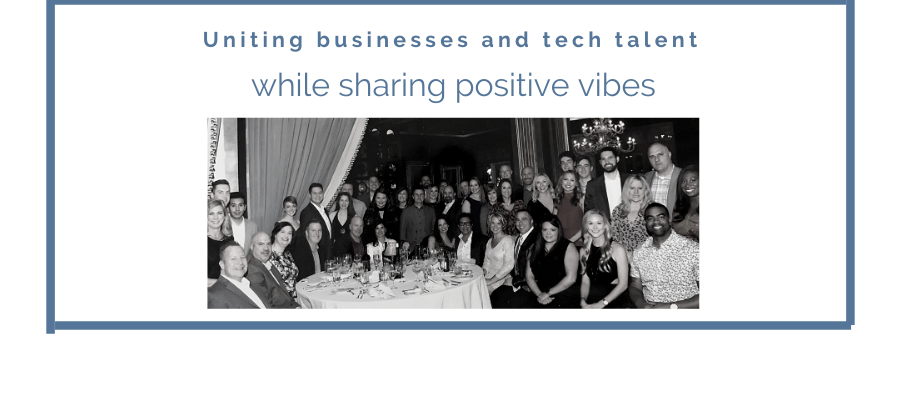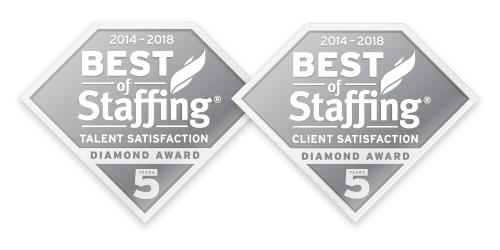TriCom CEO Matt Sharples shares his deeply personal reasons for giving back to one local workforce development nonprofit, and his goals for the future.
I don’t often like talking about my involvement with local causes. To me, it feels like self-promotion and there’s a lot of that these days. So when my marketing agency Crux suggested writing a blog about why I got involved in the i.c.stars program brought to Kansas City by Will Shields and others, I hesitated.
The reluctance stems from my own story—both personal and professional—and requires me to remember things I’d rather not some days. I hope, in the end, it demonstrates not just why I got involved but why you should too.
The beginning
Growing up in Ann Arbor, Michigan in the ‘70s and ‘80s was both wonderful and challenging. Raised by a single mom after my dad left, my early years were hard. Because of this, I was not a good student; I was distracted. I graduated from high school with a 2.3 GPA and barely got into college, which was already paid for by my late grandfather.
Despite my challenging upbringing, Ann Arbor was a culturally rich town. A good number of my friends were from varying ethnicities and backgrounds. There were art fairs, ethnic festivals, and Michigan football games. As an elementary school teacher, my mom was able to bring home one of the first home computers by using the thousands of rewards points she acquired when her students bought their summer reading materials. A calculator by today’s standards, the Commodore 64 was one of the very first home computers available to the public and I was in awe of it. I dove in headfirst learning how to code in BASIC, playing games, and using it for homework assignments.
During a summer off from college, I was introduced to the professional work world by temping for my mom’s friend’s staffing firm. By luck of the draw, I was assigned to one of the first manufacturers of computer-aided design and manufacturing systems (CAD/CAM). I worked in the shipping department, gathering, organizing, and shipping computer manuals. It was tedious work but an important part of my introduction to both the professional world, the staffing industry, and this new world of computing.
After graduating from Iowa State with a Speech Communication and Psychology degree with a 2.97 GPA (which yes, I rounded up!), my options were limited to begin with. After getting a tip from a friend, I decided to move south to Kansas City. What I noticed most about Kansas City was that while it had A LOT more black and brown people than Iowa did, most of them did not live in my neighborhood.
As I moved into the middle chapters of my life, my choice of occupation was fortuitous Not only were computers changing the game, but more and more companies were beginning to use contractors for projects within information systems. By sheer luck at first and then with a lot of hard work, I was able to become a minority owner in a startup technical staffing firm called TriCom. Buoyed by Y2k, TriCom grew to over $10 million in revenue during our first five years. In 1999, life was good, married with a son, and a lucrative career with equity, I couldn’t have imagined the storm that was on the horizon.
To tell you the next part requires too much backstory but suffice it to say, everything fell apart. I bought the majority interest in TriCom by borrowing more money than I thought a bank would ever give a 32-year-old kid, risking my whole financial future. The dot-com bubble and then the events of 9/11 would crater the economy. Then, what was left of my whole dysfunctional family collapsed. I hit bottom. I felt alone and numb, even amongst people who cared about me.
New to managing a business where I felt like a complete imposter, $5 million dollars in debt from buying it, divorced with limited access to my son… It was too much. Living in my furniture-less apartment, scraping along the bottom, I clung to the lines in the many self-help books I’d collected over the years… “your future does not equal your past.” What if this wasn’t happening to me, what if it was happening for me? I kept telling myself, “Your life is yours now, what do you want to do with it?”
I’m not exactly sure when it happened but one day, I decided to grab the wheel.
I took time to help heal myself by getting involved in causes that touched me. First MOCSA (Metropolitan Organization to Counter Sexual Assault), then Cristo Rey Kansas City, and now i.c.stars, a program to reskill diverse talent from untraditional backgrounds into information technology. My involvement in these causes is and isn’t selfless. They were and are a form of selfish healing. By contributing to something bigger, I found purpose and a way to move beyond the many wrongdoings of my past. We don’t get to write the early chapters of our lives. Somewhere in the middle, though, that’s where the narrative can be changed.
And that’s where i.c.stars comes in. Backed by industry leaders and change makers, i.c.stars develops leaders through a robust training program for underserved young adults in cities across the country. We are lucky enough to have a program in Kansas City, which provides local young professionals with technology-based workforce development, leadership training and even internships and job placements. I’m honored to be a mentor and advocate for the program and have the chance to share my story and experience with cohorts each year. To me, there’s nothing more rewarding.
So…when people ask me, “Why i.c. stars?” the answer is easy.
Because your past does not equal your future. Because there’s too much inequality among the youth in our community and I want to be a part of an organization giving young professionals a chance they may not otherwise get. Because a career in IT levels the playing field for anyone willing to put in the work. Because there’s this kid from Ann Arbor, who never studied and barely made it through a maze of crazy BS, who was saved by good people and pure chance. He then went all-in on himself, paid off a mountain of debt, found a beautiful new family, and built a $28 million dollar IT staffing firm from scratch without any formal business upbringing. And I know there are others who can do the same, given the chance.
But mostly, because I would like people of all colors, genders, orientations, ethnicities, and GPAs to live in my neighborhood. And one day, I want to hear their versions of a self-made, rags-to-riches story. Because they can. That’s why.
To learn more about i.c.stars visit icstars.org today.







